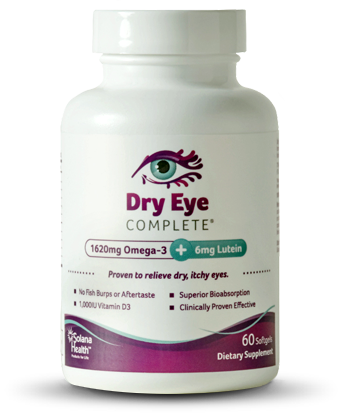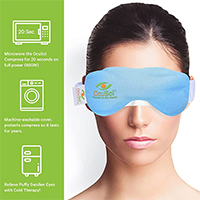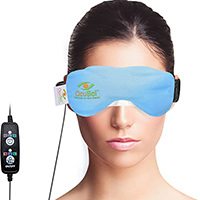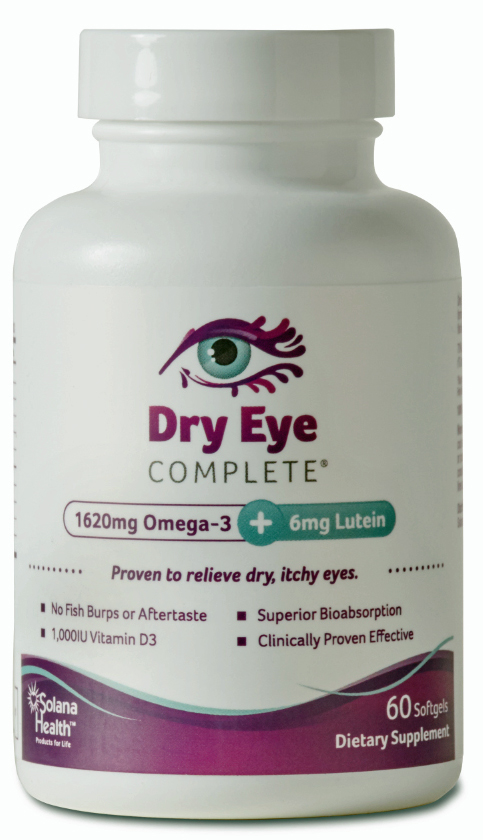More and more of us use our eyes for far more than what they were intended for. As a result, eye fatigue is now a very common problem. What makes it worse is that we spend so much time staring at different screens, both in our professional and our personal lives. Eye fatigue is uncomfortable and it leads to redness, irritation, soreness, and dry eyes. Luckily, you can actually avoid eye fatigue by following the simple steps below.
1. Get Your Eyes Checked Out
If you wear the wrong prescription glasses, or no prescription at all when you do need it, you will strain your eyes quite significantly. You must have your eyes check every other year. If you are a heavy computer user, you should increase this to once a year.
2. Get Your Lights Right
Would you ever purposefully stare straight into a light bulb for three or more hours in a row? Most of us would say ‘no’ to that question, yet that is actually exactly what we do when we stare at a computer screen. The lighting on these screens is not beneficial to our eyes at all. Added to that is the fact that our environment’s light is very poor as well. Overhead lighting is often too bright and natural light through windows comes in at the wrong angle and causes glares. Bringing down glare is a vital element of getting your lighting right. Make sure that natural light is always to your side, rather than right in front or behind you. Additionally, try turning the overhead lighting down a little bit, opting for a desk light to your side instead.
3. Use High Quality Displays
Most of us are unable to work without using computers now. Additionally, we use tablets and mobile devices, which all have screens to stare at as well. You should make sure that these screens are all of the highest possible quality. If you notice your screen has a ‘flicker’, you really need to upgrade it. Unfortunately, even the highest quality screens have imperceptible flickers, so completely avoiding it is almost impossible. However, the higher quality your screen is, the less the flicker will be, and the less tired your eyes will feel.
4. Get Your Display Right
When you work behind a computer, you have to make sure your display is right to avoid eye fatigue. As such:
• Your screen should be as bright as the rest of your workstation. If anything white on your screen looks like a light, your setting is too bright.
• Try to always write on a white background with black text.
• Lower your levels of blue light, opting for warmer tones instead.
5. Do Blinking Exercises
One of the biggest reasons as to why our eyes can get so tired is because we don’t blink enough. As an experiment, try to count the number of blinks you have in a minute when you are not staring at a screen, but are instead simply spending time. You should blink around every four seconds. Now do the same when you are going to bed, and your eyes start to feel heavy and tired. You should notice that you only blink about four times every minute, a significant reduction. When you use screens, your blinking rate reduces to the level of tired eyes, just before you fall asleep. It is no wonder, therefore, that they feel fatigued! Place reminders to yourself to blink, such as on the side of your computer monitor and on the dashboard of your car if you are taking a long journey.
6. Do Some Eye Exercises
There are lots of different eye exercises you can do. Simply moving your eyes (not your head) is usually enough to find some relief. The most important exercises you can do, however, is the 20-20-20. This basically means that every 20 minutes, you need to spend 20 seconds staring at something that is about 20 feet away from you. This will encourage your eyes to refocus. If you don’t do this, you can experience what is known as an ‘accommodative spasm’, which means you won’t be able to focus on anything in the distance for a period of time.
7. Give Yourself a Break
Your eyes do a lot for you. They process millions of images every second, deciding what you should see and what you should remember as well. They help you recognize people, read, write, know whether it is night or day, and more. For all that work, they deserve the occasional rest and some TLC. Simply close your eyes every once in a while, allowing them to recover. While you are doing that, you can palm your eyes as well. This basically means that you rub your palms together until they feel warm, and then cup your eyes. The warmth is very soothing.
8. Get Computer Eyewear
Because it is now a recognized fact that people suffer from eye fatigue as a result of their prolonged computer use, some opticians have now started to develop specialized eyewear. This is available with and without prescription, which means you can use them when you have excellent vision, or if you wear contacts as well. This eyewear is mainly designed to reduce glare.
9. Take Your Contact Lenses Out
Contact lenses are not meant to be worn for extended periods of time, even though some lens manufacturers now proclaim that you can even sleep with them in. Contacts have a tendency to dry the eyes out, and to not let enough oxygen through to the iris. You have to make sure, therefore, that you take your contacts out at the end of a day, or preferably even sooner. Do also make sure you replace your contacts regularly, and dispose of them immediately if you ever have an eye infection of any kind.
10. Read Properly
While most people know that extended use of computer monitors is bad for their eyes, they don’t realize that reading can cause damage as well. Hence, if you are a bookworm, it is important that you use the proper reading techniques. Light is perhaps the most important thing. When you read a book, you should always sit alongside a downlight. That way, you not only avoid glare in your eyes, you also avoid shadows being formed on your pages.
Symptoms of Eye Fatigue
Eye fatigue is now incredibly common, and between 50% and 90% of people are believed to suffer from it to some extent. Common symptoms include:
• Watery eyes
• Double or blurry vision
• Headaches
• Itching, burning, tiredness, soreness
• Difficulty focusing
• Sensitivity to light
These issues can also be indicative of other problems. However, some of these are serious medical emergencies. Hence, you should never assume that you have eye fatigue, but always seek medical attention.
Resources and References:
Diseases and Conditions: Eye Strain – Information on eye strain. (Mayo Clinic)
How to Avoid Digital Eyestrain – Tips on how to prevent computer eye strain. (CNN)
Consumer Guide to Eye Exams – Information on eye examinations. (All About Vision)


















